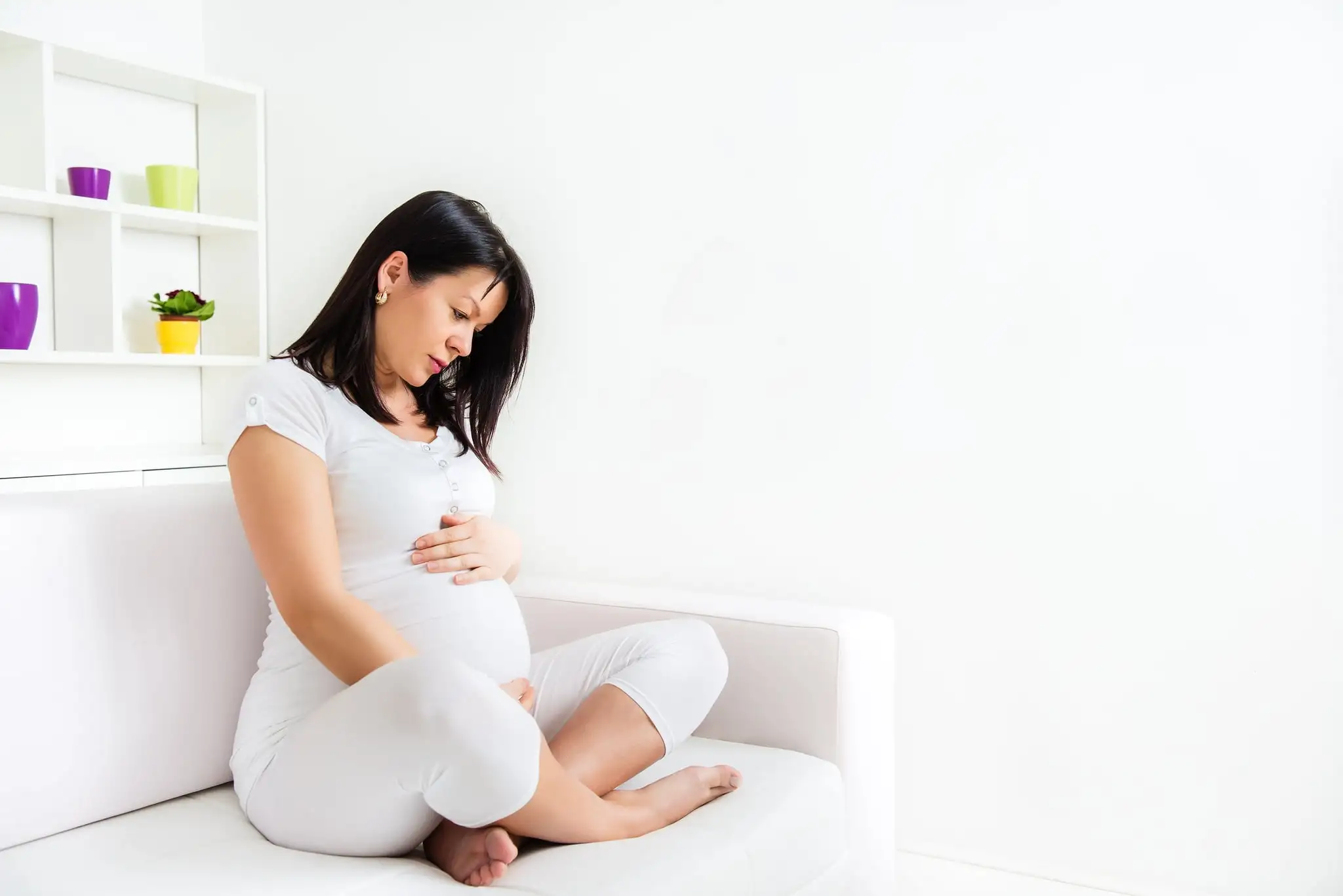Get MYLO APP
Install Mylo app Now and unlock new features
💰 Extra 20% OFF on 1st purchase
🥗 Get Diet Chart for your little one
📈 Track your baby’s growth
👩⚕️ Get daily tips

OR


Article Continues below advertisement
- Home

- Preeclampsia

- What is Preeclampsia?
In this Article
Preeclampsia
What is Preeclampsia?
Updated on 29 January 2022
When one is pregnant and they find that the placenta isn’t working they can develop pre-eclampsia. It can make you and your baby quite ill if you don’t receive the treatment you need. With Preeclampsia your baby may not get enough oxygen and nutrients, thus hampering its growth.
Pre-eclampsia usually happens in the second half of pregnancy, or shortly after birth. You’re most likely to develop it after 20 weeks of pregnancy
To understand whether one has this, there are many symptoms –
Article continues below advertisment
- Severe headache.
- Problems with vision, such as blurring or flashing before your eyes.
- Severe pain just below your ribs.
- Nausea or vomiting.
- Severe heartburn and acidity
- Sudden, severe swelling of your face, hands or feet.
A lot of women ask when and if they are likely to develop pre-eclampsia
You’re much more likely to develop pre-eclampsia if you:
- Had high blood pressure in a previous pregnancy.
- Have chronic kidney disease.
- Have an autoimmune condition, such as lupus.
- Have either Type 1 or Type 2 diabetes.
- Had high blood pressure before you were pregnant.
If any of these apply to you, your doctor will recommend that you take a daily low dose of aspirin from 12 weeks of pregnancy.
Apart from this, you’re also at risk of having pre-eclampsia if:
- This is your first baby.
- If you're an adolescent or over 35 years old.
- You had a gap between pregnancies of 10 years or more.
- You were obese before you were pregnant, with a high body mass index (BMI) at the start of your pregnancy.
- Your sister or mum had pre-eclampsia.
- You are expecting twins or triplets
Article continues below advertisment
How to prevent preeclampsia?
There is no real way of actually treating preeclampsia. The one thing you could do is attend all your prenatal appointments and eat medications that have been prescribed. Familiarize yourself with the symptoms, so that you can be prepared! Research has shown that calcium supplements can cut the risk of pre-eclampsia in women with low calcium diets. Your doctor will speak to you about supplements you need to stay healthy in pregnancy.
Mild pre-eclampsia
Mild cases of pre-eclampsia are usually treated on an out-patient (OPD) basis. Depending on the test results, you're likely to go home after the check-up. Your doctor will prescribe medication to control your blood pressure and suggest you get enough rest.
Moderate pre-eclampsia
Some cases of moderate pre-eclampsia may be treated on an out-patient basis. However, in some cases, your doctor may suggest you stay in the hospital for longer to be monitored.
You’ll have your blood pressure checked at least four times a day and need to take medication to lower your blood pressure. You’ll have blood tests and you may also have ultrasound scans if you were diagnosed before 34 weeks or if your doctor is concerned about your baby.
Article continues below advertisment
Severe pre-eclampsia
You’ll need to stay in the hospital if you have severe pre-eclampsia, so you can be monitored closely. You’ll have blood pressure, urine and blood tests at least four times a day, as well as medication to control your blood pressure. Your baby will also be checked carefully. Doctors will monitor his growth and wellbeing via scans, and his heart rate will be measured.
Your doctor's priority is to stop you from developing complications. So your fluid levels will be controlled, and you may be put on a drip that contains magnesium sulphate. Magnesium sulphate will lower your risk of developing eclampsia. Sometimes, severe pre-eclampsia can cause fits, and magnesium sulphate can help prevent that happening.
Apart from all this, Pre-eclampsia can all lead to other complications:
If pre-eclampsia becomes very severe, then it may lead to other complications. This means you may get more serious symptoms, and you may need to go to intensive care or a maternity high-dependency unit. It can lead to other symptoms like –
Eclampsia
This is a rare but serious condition that can lead to seizures or convulsions and can put both you and your baby at great risk.
Eclampsia can develop during pregnancy and birth. It can also happen in the first few days after your baby is born, and especially if your pre-eclampsia was severe.
Article continues below advertisment
HELLP syndrome
This is a rare liver and blood-clotting disorder that can develop before pre-eclampsia has been diagnosed. HELLP stands for:
- H: hemolysis, which means the breaking down of red blood cells.
- EL: elevated liver enzymes, which is a sign that your liver is not working properly.
- LP: low platelet count, which means you may not have enough platelets to allow your blood to clot.
Other complications
These can include:
- liver and kidney failure
- stroke (cerebral hemorrhage)
- fluid in the lungs (pulmonary edema)
- blood clotting disorders
We hope this article has provided you with enough information about this so-called problem and has helped you to understand what it is, how to prevent it, to treat it, and other complications it can lead to. As soon as you feel you’re having the symptoms, visit your doctor. Do not delay!
Article continues below advertisment



Written by
Sanju Rathi
A Postgraduate in English Literature and a professional diploma holder in Interior Design and Display, Sanju started her career as English TGT. Always interested in writing, shetook to freelance writing to pursue her passion side by side. As a content specialist, She is actively producing and providing content in every possible niche.
Read MoreGet baby's diet chart, and growth tips

Related Articles
RECENTLY PUBLISHED ARTICLES
our most recent articles
Annaprashan
Know all about Annaprasan ceremony of your baby and how to celebrate it.
Conception
Top 5 Things to Help you get Pregnant

First Trimester
Have you prepared a shopping checklist for your first trimester? Hope you haven't missed these 5 important things.
Working Parent
Planning to go back to work after the birth of your Baby? Here are 10 Awesome Tips to Help you Manage
Diet & Exercise
5 Safe and Effective Core Exercises for New Moms

Fears & Phobias
Top 6 Fears during Pregnancy and Why you shouldn't worry about them?
- How does practicing Garbha Sanskar during 9 months of pregnancy help women deliver a healthy baby?
- Do you believe in Ayurveda? Here are some important Ayurvedic suggestions for a pregnant woman.
- Here are some interesting tips that can help you effortlessly manage your office work, baby care, and domestic duties.
- Planning a babymoon? Here are some tips to make it a relaxing and healthy one
- What are the few ways to manage hormonal changes in the body that every woman goes through during pregnancy?
- 5 finance management tips for new parents
- Symptoms and Causes of Cold in Infants
- Do you also want to choose an Ayurvedic diet during your pregnancy?
- 6 Awesome Tips to Make Your Baby's First Birthday Party Memorable and Fun
- 7 points to remember while designing your baby's nursery
- Are you finding it arduous to manage your toddler and a new baby at the same time?
- What are the common health conditions that you should be aware about when expecting more than one baby?
- Learn all about the top 4 causes of food aversion and cravings during the pregnancy period
- Which 6 skills are expected from a child to be ready for preschool?


AWARDS AND RECOGNITION
Mylo wins Forbes D2C Disruptor award
Mylo wins The Economic Times Promising Brands 2022
AS SEEN IN
















At Mylo, we help young parents raise happy and healthy families with our innovative new-age solutions:
- Mylo Care: Effective and science-backed personal care and wellness solutions for a joyful you.
- Mylo Baby: Science-backed, gentle and effective personal care & hygiene range for your little one.
- Mylo Community: Trusted and empathetic community of 10mn+ parents and experts.
Product Categories
baby carrier | baby soap | baby wipes | stretch marks cream | baby cream | baby shampoo | baby massage oil | baby hair oil | stretch marks oil | baby body wash | baby powder | baby lotion | diaper rash cream | newborn diapers | teether | baby kajal | baby diapers | cloth diapers |







